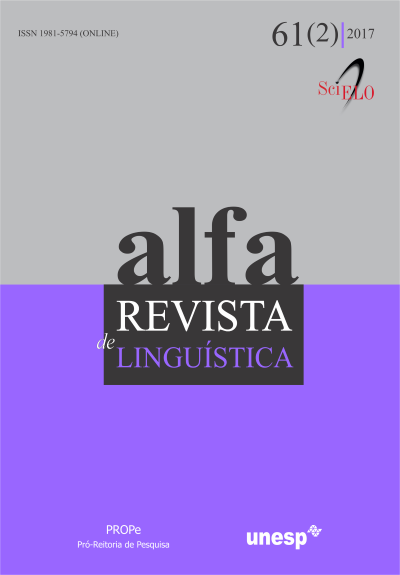The semantic property motion in the lexical representation of Brazilian Portuguese verbs
DOI:
https://doi.org/10.1590/1981-5794-1709-8Keywords:
Lexicalization, Primitive predicates decomposition, Verbal classes, motion verbs,Abstract
In this paper we (i) describe semantic and syntactic behavior of motion verbs in Brazilian Portuguese, (ii) analyze the lexicalization pattern of these verbs and (iii) determine how motion is represented in the lexical structure of verbs by means of primitive predicates decomposition metalanguage. We propose that Brazilian Portuguese motion verbs lexicalize the execution of an event in despite of path or manner of motion, as proposed in many linguistics papers. However, although motion verbs show the same pattern of lexicalization, they cannot be considered as belonging to a single verbal class, because they differ in number and type of their arguments, in their lexical aspect and in their unaccusativity behavior. Thus, Brazilian Portuguese motion verbs are divided, at least, into five different classes. Each class presents its own semantic representation.
Downloads
Downloads
Published
How to Cite
Issue
Section
License
Manuscripts accepted for publication and published are property of Alfa: Revista de Linguística. It is forbidden the full or partial submission of the manuscript to any other journal. Authors are solely responsible for the article's content. Translation into another language without written permission from the Editor advised by the Editorial Board is prohibited.

